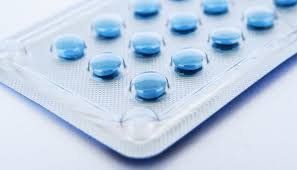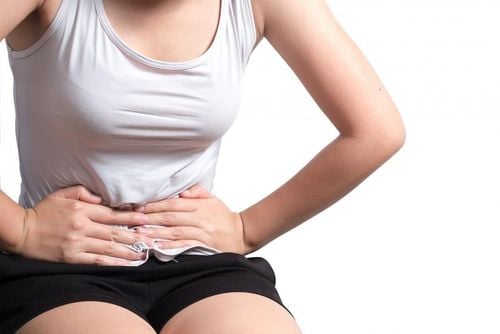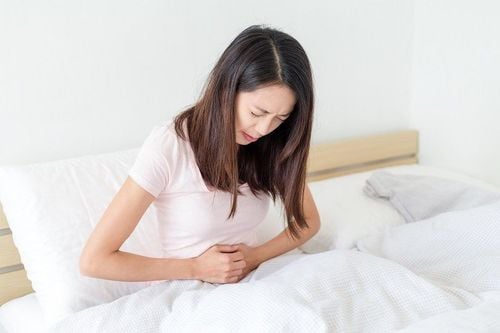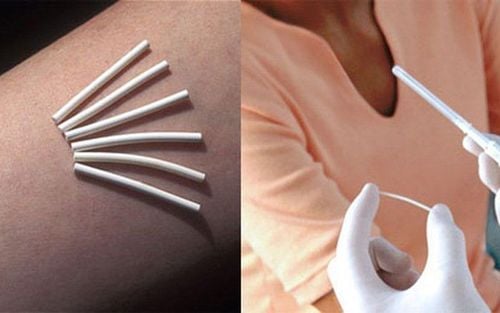This is an automatically translated article.
Newborn girls have about 1 - 2 million eggs, but normal ovaries until puberty only have about 300,000 eggs. Of these, only about 500 will be released during a woman's reproductive years. The remaining fruits die off over time, and are depleted by menopause.
1. Do newborn girls have eggs?
As a fetus in the early stages of development, a girl has about 6 million eggs. The number of these oocytes will steadily decrease, until the baby girl is born with only 1-2 million eggs left. The sources may vary slightly, but the average is millions of eggs.
At birth, female infants already have all the egg cells. No new eggs are created during later life. This fact has long been accepted by science, but there is still a small group of researchers pursuing work to disprove it.
Immature eggs are called female gametes (oocytes). The egg cell "rests" in the fluid-filled follicle, until it begins to mature. The egg cell grows into an ovum (ovum/ova), or mature egg.
Although there are already eggs in the body, the menstrual cycle only occurs when a girl reaches puberty.
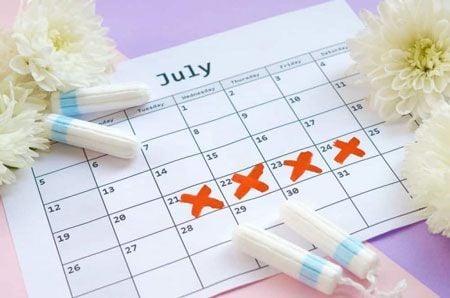
Chu kì kinh nguyệt bắt đầu khi bé gái bước vào tuổi dậy thì
2. How many eggs do girls have during puberty?
Puberty begins when the hypothalamus in the brain produces gonadotropin-releasing hormone (GnRH). In turn, GnRH stimulates the pituitary gland to produce follicle-stimulating hormone (FSH). FSH activates egg development and increases estrogen levels. The major changes in internal hormones are the cause of affecting the mood of women.
By puberty, girls have between 300,000 and 400,000 eggs. The remaining eggs die off before puberty, with more than 10,000 disappearing each month.
Menstruation begins about 2 years after the soft tissue develops into the breast. The average age of puberty is 12, but some girls have precocious puberty around age 8, and most have puberty before age 15.
3. How many eggs do women have after puberty?
The number of dead eggs per month decreases after puberty. After the onset of the menstrual cycle, women release about 1,000 immature eggs per month, about 30-35 per day.
Scientists don't know the cause of this, but they are certain that egg loss is not affected by common factors, such as hormones, birth control pills, pregnancy, nutritional supplements , health or even diet... In some exceptional cases, smoking, chemotherapy and radiation will speed up ovulation.
Mature follicles will become sensitive to the hormones of the monthly menstrual cycle. However, only a single egg is ovulated per cycle. There are still a few exceptions to ovulate 2 eggs in a month, if fertilized will form fraternal twins.
4. How many eggs do women have when they reach adulthood and middle age?
At the age of 32, a woman's fertility begins to decline and declines even more rapidly after the age of 37. By the age of 40, most women's eggs drop to only about 3% of what they were in the womb.
There is no exact answer for the number of eggs left in a 40-year-old woman. What's more, certain factors - like smoking, can cause you to have fewer eggs than other women.

Hút thuốc lá có thể làm giảm số lượng trứng ở phụ nữ
5. Egg quality decreases with age
After knowing how many eggs a woman has, you also need to pay attention to the quality of eggs.
Just before ovulation each month, the egg begins to divide. Older eggs are more prone to errors during division, so they are more likely to contain abnormal chromosomes. This is why your risk of having a baby with Down syndrome and other developmental problems increases as you get older.
You can imagine your ordinary ovary as an army, with the strongest soldiers on the front lines. As the years go by, quality eggs are shed or discarded, and only older, lower quality eggs are left.

Chất lượng trứng giảm theo tuổi tác
6. Ovaries after menopause
When the egg supply is depleted, the ovaries will stop producing estrogen and you will go through menopause. The exact timing of menopause depends on how many eggs you had when you were born.
The difference between newborn girls is 1 or 2 million eggs. So, if you are born with a larger number of eggs, you will be more likely to get pregnant and give birth naturally in your mid or even late 40s.
7. Egg freezing technology
Egg freezing, also known as oocyte freezing or selective fertility preservation (EFP).
Many women choose to freeze their eggs to ensure a healthy baby whenever they want, without worrying about age. Cancer patients about to start chemotherapy may also be prescribed egg freezing to preserve fertility. According to one source, your chances of getting pregnant with frozen eggs are better if you do it before the age of 35.
Other reproductive technologies, such as IVF, are also helping women get pregnant in their 40s and even 50s. Note, IVF with one's own eggs is not a cure-all. viable option if you are infertile and over 40 years old. In this case, a donor egg from a younger woman will help you conceive in your 40s and 50s.
To learn more about fertility plans and how fertility changes over time, you can contact directly to the Department of Reproductive Support - Vinmec International General Hospital System nationwide.
Please dial HOTLINE for more information or register for an appointment HERE. Download MyVinmec app to make appointments faster and to manage your bookings easily.
Reference source: webmd.comhealthline.com



